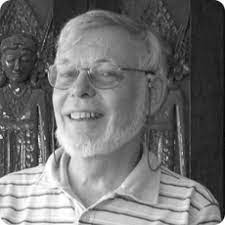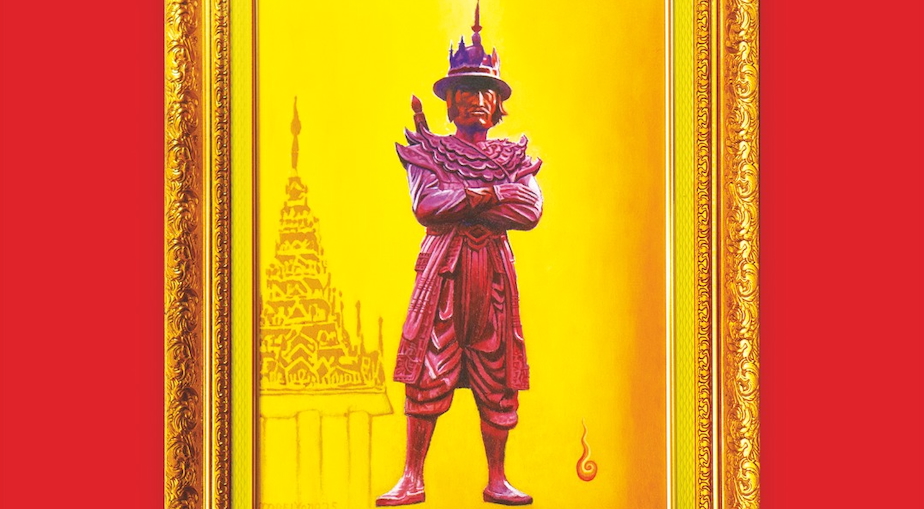Owen Podger’s guide to aid-giving
The 1998 Jakarta riots, the fall of President Suharto and his 32-year-old authoritarian rule and the Asian financial crisis, were social and political earthquakes. Emerging from the rubble, the idealists wanted changes. According to the Australian-educated economist Boediono who later became vice president (2009-2014), they sought ‘economic recovery, improved governance, supremacy of law, and democracy’.
Pushing this idea along was an Australian who, though little known in his homeland, was a well-known and respected figure in Jakarta.
Owen Podger (1943-2024), good governance advocate, corruption fighter and democracy defender wasn’t always in favour with the elite in Indonesia and other Asian nations where he worked for more than 30 years.
This had nothing to do with his professional skills, overseas education or personal traits. He was a modest, personable Aussie married to an Indonesian and fluent in the language.

But here’s the problem: Owen wouldn’t tell his employers what they wanted to hear, unless it was the truth. His reports often revealed discomforting facts suggesting painful solutions.
Owen, 80, died in his sleep on the remote island of Sumba on 6 June 2024. Just last year he posted this academic paper in his continuous campaign to get the outside ‘experts’ to ask the locals and glean their wisdom.
Owen trained as an architect at UNSW in the 1960s, later shifting to town planning and then to public administration.
In 2012 he organised a seminar in Jakarta led by Boediono, for bureaucrats and ministers’ advisors, on implementing good government policies and avoiding being snared by politics and corruption.
Copies of The Role of Departmental Secretaries (ANU E-Press, 2009) were distributed to all new civil servants in an effort to shake off old bad practices. The book’s author was Owen’s younger brother Andrew, a former federal Public Service Commissioner and ANU Professor of Public Policy.
Andrew recalled that Owen’s love of Indonesia began in the early 1970s when he travelled through the country after completing a master’s degree at UCLA. ‘He spent many of his decades living in Indonesia, involved firstly in advising on urban planning and then, in light of first-hand experience with corruption and poor management, in bureaucratic reform.’
As Owen himself described it, ‘I changed my career from just urban development to governance reform: particularly policies to improve performance of democratic, decentralised and accountable government, with emphasis new mindsets to respond to and anticipate disasters.’
In Indonesia he emphasised the need to decentralise power and encourage the regions to recover their responsibilities. This eventually happened, though it was piecemeal. Some provinces are now stronger and more innovative. Lingering influences from the old guard often killed initiatives, however, and it sometimes seemed as though regional bureaucrats had to defer to Jakarta for permission to empty ashtrays.
In 2004 Owen was the first international adviser to the new Regional Representative Council (DPR, Dewan Perwakilan Daerah Republik Indonesia). With a team of legal experts from the University of Indonesia, he helped draft laws on regional government and villages.
Foreign advisors are now becoming rare in Indonesia. During the early years of Suharto's 32 years in power, the so-called ‘Berkeley Mafia’ of economists trained at University of California had a major influence. They were replaced by new generations of local-born experts often educated overseas. The role of outsiders now tends to be confined to specific tasks within aid agencies directed by Indonesians. The language of rich Western nations helping ‘developing states’ has long shifted. The term now used is ‘partnerships’.
When the earthquake and tsunami hit Aceh in 2004, the disaster was too big for the nation to handle alone, so Indonesia called out for international assistance.
Andrew Podger recalled, ‘Owen worked with the local governments in Aceh not only to help them address the immediate response, but also to develop longer-term sustainable redevelopment plans. He was disappointed that the central government, and international aid agencies including AusAid, failed to listen to the local communities and tended to impose external ‘solutions’. This experience added to his long-held view that democratic and bureaucratic reform needs to be based on local communities.’
As Andrew further explained, despite the setbacks his brother’s determination and commitment remained strong, ‘While continually disappointed by the slow progress of reform in Indonesia and the failure to successfully combat corruption, Owen remained positive about Indonesia’s future.’
In 2019 Indonesia established its own international aid agency. From January to October 2023, it disbursed Rp140.45 billion (AU$13.5 million) in grants for 28 global humanitarian aid activities, including for Palestine.
Meanwhile, Australia’s aid programmes have been shrinking. From 1995 to 2022, Australia dropped from 9th highest donor to 27th among donor countries, Giving AU$4.5 billion in 2022.
In many ways, Owen’s passing marks a shift in the culture of international aid programs and the role of outsiders. Even in his early days as an advisor his work shows he was ahead of his time, backing local ideas against imported fixes and urging others to do the same.
He was buried alongside his late wife Helena in an above-ground tomb at the front of the family’s Sumba house – a tradition in the Eastern Indonesia archipelago that’s largely Christian.
Duncan Graham (wordstars@hotmail.com) is an Australian journalist living in East Java. His blog can be found at www.indonesianow.blogspot.com.












